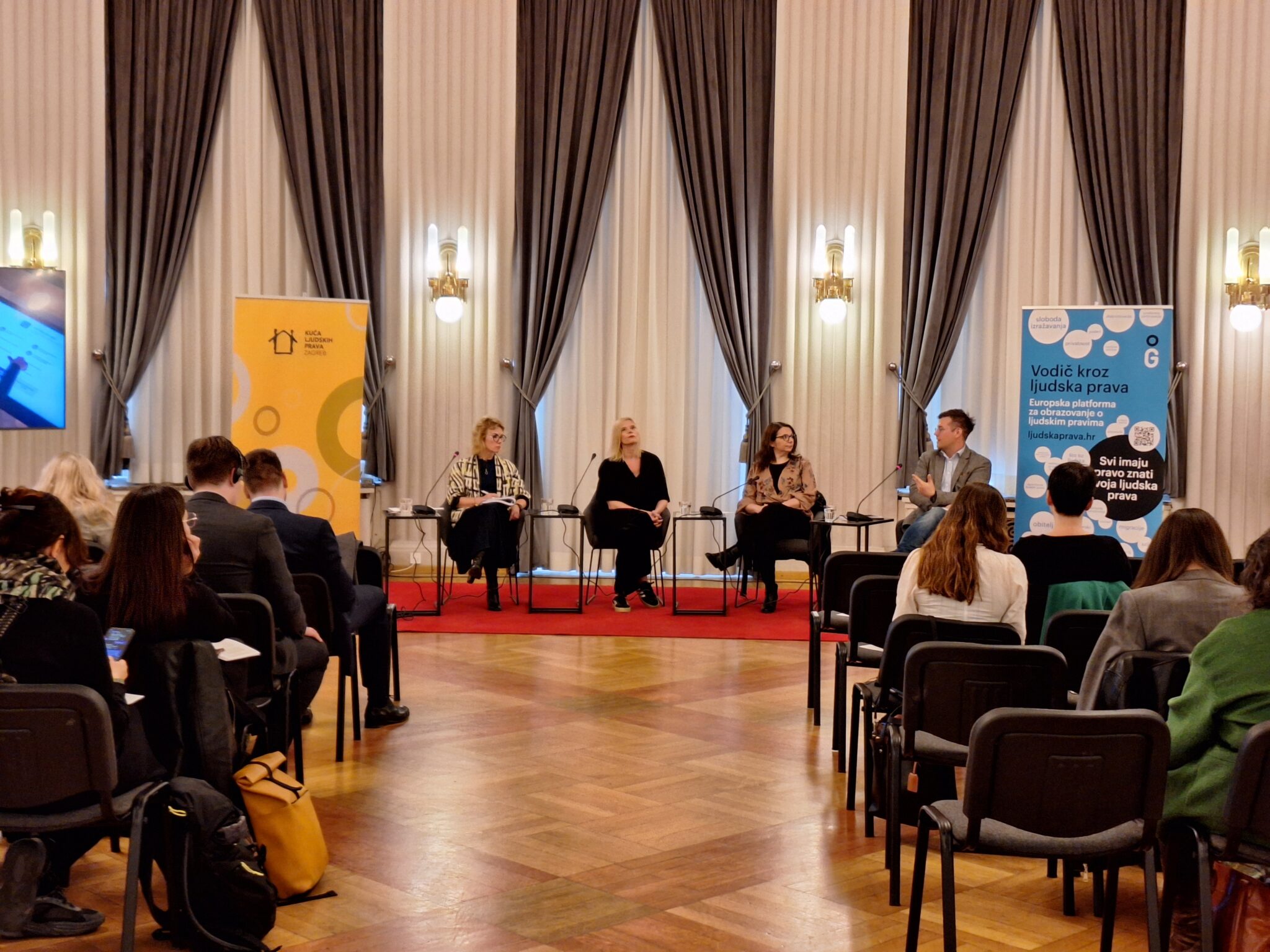On Tuesday, 23 April 2024, at the Croatian Journalists’ Association, the Human Rights House organized a panel discussion dedicated to providing legal support to victims of human rights violations, focusing primarily on observed shortcomings, challenges, and obstacles within the system, as well as potential solutions and areas of progress and improvement. Deputy Ombudswoman Dijana Kesonja took part in the discussion, alongside Natalija Havelka from the Centre for Peace, Nonviolence and Human Rights Osijek, Željka Leljak Gracin from Green Action, Matija Miloš from the Faculty of Law, University of Rijeka, and Ivan Novosel from the Human Rights House, who also moderated the discussion.
Deputy Kesonja emphasized that the free legal aid system and its challenges have been a subject of the Ombudswoman’s annual reports for years, with recommendations aimed at improving the system’s efficiency and continuous monitoring of their implementation.
Some of the key challenges include insufficient public awareness of the free legal aid system, particularly among citizens from disadvantaged socio-economic backgrounds. For this reason, it is necessary for the Ministry of Justice to launch a broad information campaign to inform citizens of their rights, which has been among the Ombudswoman’s longstanding recommendations.
Deputy Kesonja also pointed to the long-standing problem of inadequate financial support for free legal aid providers. Although the total available funding increased in 2023, it is crucial that payments are made timely – which is often not the case.
Besides raising awareness about the availability of primary and secondary free legal aid, it is equally important to ensure that citizens have access to civil society organizations providing primary free legal aid. Currently, almost half of all providers are based in Zagreb, while in large parts of Croatia – for example, Šibenik-Knin, Dubrovnik-Neretva, and Zadar counties – there are no registered primary legal aid providers. While some organizations do travel to these areas, which is good practice, this generates additional costs for them. Therefore, free legal aid coverage must be organized at the national level.
It is also necessary to ensure that providers of free legal aid, especially county administrative department staff who are authorized under the law to provide primary legal aid, receive adequate and continuous training. This is particularly important as many of them are burdened with processing requests for secondary legal aid and often do not actually provide primary aid in practice. Continuous education is equally vital for civil society organizations offering primary free legal aid.
In conclusion, Deputy Kesonja underlined the importance of legal clinics, which, through socially beneficial work, link law faculties with the wider community, allowing students to apply their knowledge to real-life issues while deepening their understanding of citizens’ needs.
More on this topic, including the Ombudswoman’s recommendations, can be found in her 2023 Annual Report.





